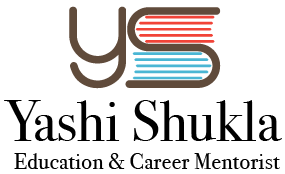The MBA degree has proved its mettle in continuing to be the most potent catalyst for career advancement and opportunities in leadership and one that significantly contributes to earnings in 2025. However, not all MBA degrees are born equal when it comes to the payoff; in fact, a few of them stand out in terms of return on investment, driven by an approximate increase in demand and criticality of associated roles, which prepare graduates.
Here’s a look at all the high-paying MBA specialisations in 2025, with the top job roles and estimated salaries.
1. MBA in Finance
Average Salary: $130,000 – $200,000+
Finance is a perennial stronghold for ROI in MBA education. By 2025, MBAs in finance will be much sought after in banks as employees, in private equity, investment firms, fintech, and corporate finance departments.
Top Job Roles:
Investment Banker: $150,000-$300,000+
Financial Manager: $120,000-$160,000
Hedge Fund Analyst: $140,000+
Chief Financial Officer: Above $200,000
The blessings of cryptocurrency, ESG investing, and fintech breakthroughs add multiple layers of opportunity for the prospective finance MBA.
2. MBA in Strategy
Average Salary: $125,000-$190,000+
The critical and significant changes that Strategy MBAs will intend to make in major corporations are typically the first steps toward very elite consulting firms or executive leadership.
Top Job Profiles:
Management Consultant: $150,000-$250,000+
Strategy Director: $140,000-$180,000
Business Development Executive: $130,000+
McKinsey, BCG, Bain, and so on recognized the value of these MBAs with rigorously sought-after strategy at great importance, as they present excellent problem-solving and analysis abilities.
3. MBA in Technology Management/Information Systems
Average Salary: $120,000-$180,000+
The demand for MBA students specializing in tech management has mushroomed to accommodate their whole creative adjustment at the business and technology front.
Top Job Roles:
IT director: over $130,000
Product Manager (Tech): $125,000-$170,000
Chief Technology Officer (CTO): $180,000+
All industries are now experiencing this revolution, which makes this MBA specialization most relevant in 2025.
4. MBA in Healthcare Management
Average Salary: $110,000-$160,000 Healthcare
continues to grow rapidly, especially with advancing biotechnologies, telemedicine, and health technologies. An MBA in Healthcare Management prepares one for leadership in the following areas-hospitals, health start-ups, and pharmaceutical companies.
Top Job Roles:
Hospital Administrator: $120,000+
Healthcare Consultant: $115,000-$150,000
Pharma Product Manager: $130,000+
It is one of the fastest-growing MBA paths in the world and in the developing regions, especially in older populations.
5. MBA in Marketing (Digitally Orientated).
Average Salary: $100,000-$150,000+.
The boom in digital marketing is set to continue unabated. Those MBAs specializing y marketing with a really good understanding of data analytics, brand management, and social media strategies are rewarding themselves for a much longer period.












